Our Global Ambassadors
Our Global Ambassadors help Applied Microbiology International expand our work across the globe. Together we help to accelerate discoveries and amplify the impact of applied microbiology.
Find out more about becoming a Global Ambassador >
Global Ambassadors play a key role in meaningfully forming scientific collaborations in their regions to work towards our seven chosen Sustainable Development Goals (SDGs).

Caterina Guzman-Verri
Caterina holds a Professorship position at the Veterinary School at Universidad Nacional, Costa Rica, associated to the Tropical Disease Research Program. Her research group is interested in understanding why microorganisms cause infection in humans and animals. Most disease-causing microorganisms in humans come from inappropriate contact with animals, where transgression of natural barriers is critical. Being able to understand how these biological barriers are transgressed, particularly how a microorganism can adapt to living in another host, is relevant in order to understand how the microorganisms that cause damage emerge. Bacteria of the genus Brucella share 96-98% similarity at genome level, despite infecting different species of animals. We use high-resolution techniques, such as the sequencing of complete genomes of Brucella, combined with molecular and cell biology approaches, in order to understand how specificity is stablished in different animal species.

Filipa Godoy
Dr. Godoy is a native of Portugal, and has developed her career studying biodiversity associated with animal and human microbiomes using and developing metagenomics techniques. Her research is at the frontier of Microbial Ecology with Physiology, Metagenomics and Bioinformatics. After her NSF-funded postdoc studying with metagenomics an herbivorous bird -Hoatzin- at the DOE-JGI, she founded her first Microbial Ecology laboratory in Puerto Rico in 2012. In 2018 she joined the UPR School of Medicine and established the Microbiome Lab where she uses multi-omics approaches to study evolutionary dynamics of human infectious diseases and microbiomes. Her laboratory is dedicated to the study of host-microbial symbioses in diverse systems, especially characterizing microbiomes to understand the co-evolution, transmission and functions of microbial-host symbioses in a wide variety of phenotypes and biological systems. In her commitment to educate about the microbiome, she is also a collaborator of the “Microbiota Vault” effort, a project that seeks to conserve microbial communities around the world for the benefit of future generations. Among several active research projects, she is a researcher at the The University of Puerto Rico/University of Texas MD Anderson Cancer Center (MDACC) Partnership for Excellence in Cancer Research Grant. In addition, she is one of the multiple PIs of a study of the associations of oral microbiota with oral HPV infection among Hispanic adults and of a U54 grant focused on the prevention of HPV-related cancers in HIV+ populations in Latin America and the Caribbean.
- Website:
- Puerto Rico
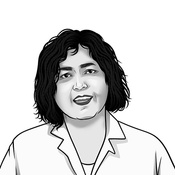
Guadalupe Virginia Nevarez Moorillon
Dr. Nevárez-Moorillón has been a full-time professor at the School of Chemical Sciences, Autonomous University of Chihuahua, Mexico, for the last 35 years. She graduated as a bacteriological chemist from the Autonomous University of Chihuahua. She completed her Ph.D. in Biology from the University of North Texas studying the bioremediation of soil contaminated with hydrocarbons, under the supervision of Dr. Gerard Roland Vela. She is a member of the National Outstanding Researchers System of Mexico (Level II) and has been granted the National Award on Food Science and Technology. She is also a regular member of the Mexican Academy of Sciences.
Her research interests include environmental microbiology, as well as predictive microbiology applied to food systems, the role of lactic acid bacteria in traditional fermented foods, and antimicrobial properties of spices, such as clove and oregano. Under her supervision, more than 50 undergraduate students, as well as more than 50 master students and 15 doctoral students have completed their degrees.
Dr. Nevárez-Moorillón also serves as AMI's Global Ambassador for Mexico.

Sérgio Luiz Alves Jr
Ayodeji Charles Osunla
Ayodeji C. Osunla holds a PhD in Microbiology from the University of Fort Hare, South Africa. He is currently a postdoctoral fellow and project manager at the Toxicology Center, University of Saskatchewan, Canada. He is an accomplished and seasoned microbiologist with over 13 years of experience conducting research and teaching at the university level.
His areas of specialization include environmental and applied microbiology, pathogen biology, disease transmission, and water and wastewater quality. His research focuses on the ecology, evolution, and epidemiology of pathogens, as well as the role of virulence and antibiotic resistance genes in wastewater-, clinical-, and food-related aspects. In addition to his expertise in the genomic surveillance of bacterial pathogens, Dr. Osunla also displayed his expertise in the surveillance of SARS-CoV-2 RNA in wastewater during the pandemic in Canada. Owing to his commitment to work, leadership style, and passion to train other people, Dr. Osunla coordinates the Infectious RNA and DNA monitoring unit at the Toxicology Center, University of Saskatchewan.
He played a pivotal role in providing weekly reports and data to the Public Health Agency of Canada and the Government of Canada, which are crucial for informing decision-making and raising awareness regarding the prevalence of SARS-CoV-2 within Canadian communities.
In addition to his research experience, he has a proven track record of academic excellence and leadership. He has published extensively in top-tier journals and has received numerous grants and awards for his work. Considering Dr. Osunla’s significant excellent research and impact in the Toxicology Center and within the University, he has been invited as a judge in symposiums and conferences. He has presented his findings on wastewater surveillance and foodborne pathogens at more than five international physical conferences across four continents.

Lisa Stein
Work in our laboratory focuses on the numerous and diverse pathways of inorganic nitrogen and single carbon metabolism in bacteria and archaea. Using the tools of comparative genomics, molecular biology, physiology, and biochemistry we study how microorganisms process nitrogen and methane at the molecular, whole-cell, and ecosystem levels. Our goals are to track the evolution of nitrogen metabolism, predict how and when deleterious nitrogen oxide products are released to the environment, and define linkages between methane and nitrogen metabolism. The greenhouse gas nitrous oxide, the ozone depleting nitric oxide, and the groundwater polluting nitrate are the most significant of the nitrogen oxide pollutants created and released by microbial nitrogen metabolism. Single carbon metabolism, i.e. methane oxidation and carbon fixation, are intimately connected to the biogeochemical nitrogen cycle. By interrogating the linkages between single carbon and nitrogen metabolism, we can harness microorganisms to generate commercially viable bioproducts using single-carbon waste streams as feedstocks. We can also maximize microbial activities to increase productivity of vertical agriculture aquaponics systems without production of greenhouse gases.

Supram Hosuru Subramanya Ph.D.
Dr. Supram's research interests include infectious diseases and antimicrobial resistance. His main focus is on genomic one-health surveillance and understanding in-depth how multi-drug resistant bacteria (MDRs) colonize and infect humans in order to provide the best possible healthcare. He has collaborated with researchers around the world. Supram has published more than 50 peer-reviewed articles. Currently, he is an Associate Editor for journals such as Journal of Antimicrobial Chemotherapy-Antimicrobial Resistance (JAC-AMR) and PLOS ONE. He has received more than 20 awards from various international scientific societies. Having demonstrated excellence in research and commitment to advancing healthcare epidemiology, infection prevention, and diagnostics in LMICs, Supram was appointed as an International Young Ambassador of Science by the American Society for Microbiology (ASM) and the Society for Healthcare Epidemiology of America (SHEA). In his previous position as assistant professor of microbiology at Manipal College of Medical Science, Nepal, he oversaw the diagnostic microbiology laboratory in addition to teaching medical students.
Upon obtaining his bachelor and master of science degrees in medical microbiology, Supram did his doctoral research on the AMR one-health approach and received his Ph.D. from the Manipal Academy of Higher Education, India.

Sean Gibbons
Sean Gibbons received his PhD in biophysical sciences from the University of Chicago in 2015, dual-advised by Jack Gilbert and Maureen Coleman. His graduate work focused on using microbial communities as empirical models for testing ecological theory. Gibbons completed his postdoctoral training in Eric Alm’s laboratory in the Department of Biological Engineering at MIT from 2015-2018. His postdoctoral work focused on developing techniques to quantify individual-specific eco-evolutionary dynamics within the human gut microbiome. Gibbons investigates how the structure and composition of evolving ecological networks of microorganisms change across environmental gradients. In particular, he is interested in how ecological communities in the gut change and adapt to individual people over their lifespans (i.e. host genotype, host development and host behavior) and how these changes impact human health. His lab develops computational and experimental tools for investigating host-associated microbial communities to explore the interactions between ecology, evolution and ecosystem function, applying these insights to develop personalized interventions for improving human health and well-being.

Rima Fathi Kaddurah-Daouk
My research interest over the past decade has focused on scaling up biochemical knowledge for gaining a deeper understanding of the molecular basis of neurodegenerative and neuropsychiatric disorders and finding ways to optimize their treatment. I have also made seminal contributions to the development of the metabolomics field and applications of metabolomics for the study of drug effects, establishing foundations for “Pharmacometabolomics”, a discipline that complements and informs pharmacogenomics and enables Precision Medicine initiatives. Over the next five years, I will continue to expand on these directions and applications of a systems biochemical approach, hoping to contribute in significant ways to President Obama’s Alzheimer’s Initiative as well as to Precision Medicine national and global initiatives. At the heart of my research is a deeper understanding of neuropsychiatric disease mechanisms, disease heterogeneity, and optimization of treatment for patients based on genotype, metabotype, microbiome activity and environmental influences and strategies for personalizing and optimizing treatment outcomes.

Matthew Sullivan
Dr. Matthew B. Sullivan's research focus is on the co-evolution of microbe and virus (phage) in environmental populations, as well as the impact of marine phages on microbe-mediated global biogeochemistry. Genomics and model-systems-based experimentation revealed that cyanobacterial phages often contain host photosynthesis genes, which are expressed during infection and act as a diversity generator for their numerically-dominant, globally-distributed photosynthetic hosts. Using a genomic and metagenomic toolkit, we query 'wild' viral populations to identify important hypotheses that can be evaluated using model-system approaches with appropriate phage isolates. The Sullivan lab is also developing single-cell assays to investigate questions that are critical for modeling and predicting the impacts of phage-host interactions in the wild. Specifically, these include gaining an understanding of the in situ host range of phage isolates, the metabolic capacity of to-date uncultured phage-host systems, the impacts of host growth status on phage production, and the fraction of microbial cells that are infected in wild populations.

Forest Rohwer
Being a marine microbial ecologist, Dr. Forest Rohwer sees a coral reef as a finely-tuned community in which the microbes and viruses are major players. Recognizing their importance, he pioneered the use of metagenomics as a means to characterize these previously inscrutable organisms and to investigate their role in coral reef health and disease. For his scientific contributions, he has received numerous awards including the prestigious Young Investigators Award of the International Society of Microbial Ecology and the Marine Microbiology Initiative Investigator Award from the Gordon and Betty Moore Foundation.

Folarin Oguntoyinbo
Dr Oguntoyinbo achieved his BSc in Microbiology from Ondo State University, Nigeria 1989-1997, before persuing an MSc in Microbiology at the University of Ibadan, Nigeria 1995-1997. Dr Oguntoyinbo then went on to achieve his PhD in microbiology in 2003 from the University of Ibadan, Nigeria. His post-doctoral studies took place at the Institute of Food Research, Norwich, United Kingdom. Now, he is an Associate Professor and Research Mentor at Appalachian State University where his research primarily focusses on he molecular microbial ecology of fermented foods and beverages, the biochemical changes, sensory attributes and process optimization. This is aimed at provision of safe foods, improved quality and organoleptic properties through linkage of the microbiome in fermented foods with their metabolic signatures. In addition, he is testing hypotheses that can support industrial fermentation systems by maximizing microbial in situ growth dynamics, kinetics and functional properties. His research frontiers will continue to address unanswered questions on development of multifunctional starter cultures for North Carolina industrial fermented foods and beverages processing, agricultural postharvest value addition, reduction of food waste, improvement of nutritional intake and gastrointestinal health.

Peter Turnbaugh
I lead an interdisciplinary group of microbiome researchers committed to understanding host-associated microbes, reducing these complex microbial ecologies to molecular mechanism, and applying these lessons to improve the practice of medicine. Our three major topics of interest right now are pharmacology, nutrition, and phage biology. While we love sequencing and gnotobiotic mice, our work is question-driven not limited to a specific approach. Prior studies have ranged from the molecular (e.g., biochemistry, bacterial genetics, structural biology) to the organismal (e.g., gnotobiotic mice, conventional animals, and clinical trials) to the ecological (e.g., synthetic microbial communities and metagenomic sequencing). We embrace high-risk, high-reward projects and thrive on collaboration.
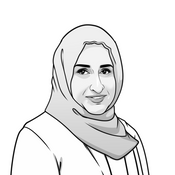
Delveen Ibrahim
Since 2006, I have been a lecturer at the University of Duhok in the Biology Department of the College of Science. My PhD in Microbiology from Nottingham University in the UK was awarded to me in 2017. My doctoral research focused on ESBL-producing E. coli and multi-drug resistance. This study involved phenotypic evaluation of the selected isolates, molecular characterization of several resistance genes, whole genome sequencing of selected strains to examine the genetic and genomic context surrounding -lactamase genes. My goal is to better understand how bacteria are killed by current and previous antimicrobial treatments, as well as how bacteria develop resistance to them. Currently, I am a Global ambassador for AMI and a junior editor for Letters in Applied Microbiology (LAM) journal.

Ahmed Shibl
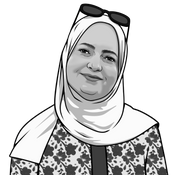
Hassna Founoune-Mboup
Hassna Founoune holds a PhD in Biology from Moulay Ismaïl University in Meknes, Morocco. Since 2011, she is a researcher at “Institut Sénégalais de Recherches Agricoles (ISRA)” in Dakar (SENEGAL). Her research program focused on promoting the contribution of soil microbial communities to improving crop yields and product quality, while ensuring their resilience to climate change.
She coordinates sub-regional research projects, teaches university courses and supervises Master's level students. Its research program focuses on crop biofertilization and soil fertility management, using mycorrhizal fungi, nitrogen-fixing bacteria and crop development promoters (PGPR) as main (but not only) levers.

Don Cowan
I was educated in New Zealand at the University of Waikato and completed a period of postdoctoral study there before moving to University College London as a Lecturer in 1985. After 16 years in London, I accepted the position at Professor of Microbiology in the Department of Biotechnology at the University of the Western Cape, Cape Town, where I was a Senior Professor and Director of the 60-strong Institute Microbial Biotechnology and Metagenomics. I moved to the University of Pretoria in May 2012 in the dual role as Director of both the University of Pretoria Institutional Research Theme in Genomics and my research group, the Centre for Microbial Ecology and Genomics. My research activities in microbial ecology encompass several fields, but mostly linked by the theme of ‘environmental extremes’. My collaborators include researchers in South Africa, Namibia, Kenya, Zambia, Argentina, New Zealand, the UK, Germany, and the US. Since my PhD studies, I have retained an interest in the ecology and enzymology of extreme thermophiles, organisms living in heated soils and hot water. For the past decade I have worked on the microbial ecology of Namib Desert soils and at the lower end of the biotic temperature scale, studying the microbiology of the Dry Valleys of Eastern Antarctica. My latest project is a continental-scale survey of soil microbial diversity. With 9 other partner nations, we are collecting 1000 soil samples from southern, eastern, western and northern Africa and aim to analyze the soil microbial community structures in the context of macro-environmental and geographic parameters.

Alexandre S. Rosado
Professor Alexandre Rosado is a microbial Ecologist studying different aspects of microbial and microbiome sciences. Rosado's research is inter- and multidisciplinary at the interface of basic and applied environmental processes (microbes/microbiome-based solutions).
He is a Professor of Bioscience at the King Abdullah University of Science and Technology (KAUST) in Saudi Arabia. Former Full Professor at Federal University of Rio de Janeiro (UFRJ) and Visiting Professor at the Department of Land, Air and Water Resources, University of California - Davis, USA. Director of the Institute of Microbiology (2010-2014) and Vice-President of the Brazilian Society of Microbiology (2011-2014); holds a BSc in Biological Sciences, MSc (Microbiology), PhD in Microbiology from UFRJ and Wageningen University & Research (WUR), The Netherlands.
His main research interests are centred around the study of microbial diversity and new microbial metabolisms, using conventional tools associated with multi-omics approaches to understanding the evolutionary history, ecological roles, and physiological capacity and capabilities of free-living and symbiotic microorganisms, including those found at the extremes of where life exists. He is also interested in astrobiology, exploring concepts and fundamentals on how extremophiles can benefit crops, other biotechnological developments on Earth, and space research.

Olanike Maria Buraimoh
Olanike Maria Buraimoh is a senior lecturer and a researcher in environmental microbiology at the University of Lagos, Nigeria. She also serves as a board member and acting managing director of the University of Lagos Ventures. She holds a PhD in microbiology from the same university, where she investigated the bacterial degradation of lignocellulosic residues in the Lagos Lagoon. She has visited and collaborated with researchers at the Karlsruhe Institute of Technology, Germany, and Ohio State University, USA. Her research focuses on bioremediation of polluted ecosystems and bioconversion of wastes to value-added products as sustainable solutions to climate change. She has developed eco-friendly biochemicals from organic wastes and obtained a patent for her invention. She has published 24 peer-reviewed papers, one book chapter and 18 conference presentations. She has received awards for her academic and professional excellence. She has skills and competencies in teaching, speaking, administration, management, quality control, project planning, biotechnology, leadership and mentorship. She is an alumna of the Global Cleantech Innovation Programme and the Research Management and Leadership Program; University Administration Support Program, CEU- IREX-UASP. She is a foundation member of the Environmental Evidence Synthesis and Knowledge Translation (EESKT) research group (https://euepin.unilag.edu.ng/eeskt-tcebcem-project/), which aims to generate, synthesize, and disseminate high-quality environmental evidence to guide policymaking processes in Nigeria. She is also involved in developing the Environmental Evidence Portal for Nigeria (EEPoN), which provides environmental-related information (policies, technical reports, peer-reviewed publications, and data) relevant to Nigeria. She is part of CEE Database of Evidence Reviews (CEEDER).

Ramy K. Aziz
I am a Homo sapiens wondering and wandering in a microbiome cloud, questioning my cognition of the external world, decoding life, and sharing knowledge. Academically, I hold a PhD degree in Microbiology and Immunology from the University of Tennessee, Memphis, USA (2005), and am a professor at the Department of Microbiology and Immunology at Faculty of Pharmacy, Cairo University, which I chaired from 2016-2021. I am currently heading the Microbiology and Immunology Research Program at CCHE. My interests are decoding living systems through experimental and computational analysis of their genomes and microbiomes, with emphasis on the genomes of bacteria and phages (more often on bacteria that colonize humans and can resist antimicrobials, and phages that are sought to control them). My applied research focuses on how bacteria and microbial communities affect human health, and how they interact with different drugs, including antimicrobials. I contributed to early bacterial & phage genome analysis tools (e.g., RAST, SEED servers, PhiSpy, and PATRIC/BV-BRC), and to establishing “pharmacomicrobiomics” as an independent applied subfield, at the intersection of microbiology & pharmacology, that can improve precision medicine. Last but not least, I am passionate about education (teaching and learning), and am now trying to learn and explore how new AI tools can improve all the above!
My publications can be found at: https://bit.ly/myscholar; some other information at http://egybio.net/people/rka.html

Akua Obeng Forson
I am the appointed Head of Department for the Department of Medical Laboratory Sciences, University of Ghana where I teach clinical microbiology associated with infectious diseases in Africa. I am also involved in the training of a critical mass of undergraduate, and postgraduate students, that also includes institutional research assistants.

George Botsaris
George Botsaris first studied Food Technology at Harper Adams University and Manchester Metropolitan University, followed by a MSc in Food Chain Management at the University of London – Imperial College. He obtained his PhD in Food Microbiology from the School of Biosciences of the University of Nottingham and currently is an Associate Professor in Food Technology and Microbiology at the Department of Agricultural Sciences, Biotechnology, and Food Science of the Cyprus University of Technology. He has also collaborated as an external lecturer for the School of Veterinary Medicine and Science of the University of Nottingham.
His present and future research perspectives cover three interrelated areas within Food Technology/Biotechnology and Food Microbiology: (i) Application of bacteriophage in food and veterinary diagnostics and in the biological control of bacterial diseases, (ii) Detection and control of foodborne pathogens and other important microorganisms in the food supply chain, and (iii) Development of novel functional foods and their shelf-life evaluation. He undertakes projects in the detection, enumeration, molecular identification, and characterization of foodborne pathogens, microbial shelf-life evaluations of conventional and functional foods, the effect of different technologies on the preservation of food, and the antimicrobial activity of natural products.

Petr Heděnec
Petr Heděnec obtained a Ph.D. in Ecology with a focus on Microbial Ecology at Charles University in Prague under the supervision of Prof. Jan Frouz (2009-2013). After completing his Ph.D., he continued as a postdoc at the Chengdu Institute of Biology at the Chinese Academy of Sciences under the supervision of Prof. Xiangzhen Li (2014-2015). Petr then pursued a one-year postdoctoral fellowship at the University of Neuchâtel in the lab of Prof. Edward Mitchell through the Swiss Government Excellence Postdoctoral Fellowship (2017-2018). He also obtained a two-year Marie Curie postdoctoral fellowship in the lab of Prof. Lars Vesterdal at the IGN department of Copenhagen University and Prof. Johannes Rousk from Lund University.
During his postdoctoral work, Petr has focused on plant-soil interactions, the role of soil microbes in carbon and nitrogen cycling, diversity and composition of gut microbiome and the beneficial effects of the soil microbiome on plant health. Petr possesses extensive laboratory skills, including the amplicon sequencing techniques, cultivation-dependent techniques as well as PLFA methods. He is also skilled in informatics and computational techniques, such as statistics and programming in R, data meta-analysis based on surveys of published data.
Since 2021, he has been an Assistant Professor/University Lecturer at the Institute of Tropical Biodiversity and Sustainable Development at Universiti Malaysia Terengganu. His main research interests in Malaysia include the diversity of soil microbiomes and their potential roles in biogeochemical cycling, bioremediation, and eco-agronomy.

Ni Luh Putu Harta Wedari
Harta is a Clinical Microbiologist, Publication Consultant, and Editorial Board Member of Scientific Journals in Intisari Sains Medis Incorporation, Bali, Indonesia. She accomplished her Clinical Microbiology Specialist degree from the Universitas Udayana, Bali, Indonesia in 2024 with summa cum laude. She completed a Master of Medicine (Infection and Immunity) at the University of Sydney, Australia in 2019 with a full scholarship from the Government of the Republic of Indonesia. Besides her professional expertise, she has been actively appointed as a reviewer in numerous international scientific journals in terms of clinical microbiology and immunology. Furthermore, being an Indonesian representative of “youthinkgreen jugend denkt um.welt" organisation based in Berlin, Germany amplified her dedication and best efforts to fulfil her responsibility in addressing sustainable development issues for a better foreseeable future. In addition to that, completing a Fellowship in Biosafety and Biosecurity, Health Security Partners, Biosecurity Engagement Program by the U.S. Department of State shaped her with a solid foundation to engage in a collaborative approach and network expansion both locally and internationally to deliver the knowledge and scientific services to all social strata.

Binod Rayamajhee
Binod joined the School of Optometry and Vision Science, UNSW, Sydney in March 2020 to pursue his PhD project on corneal infection focusing Acanthamoeba keratitis under the supervision of Dr Nicole Carnt and Prof Mark Willcox of UNSW, Sydney and Prof Fiona L. Henriquez from the Infection and Microbiology Research Group at the University of the West of Scotland (UWS). Binod holds a Master’s in medical microbiology from Tribhuvan University, Nepal in 2017. After completion of his master, Binod worked in different organisations in his home country focusing on infectious diseases, antimicrobial resistance and infection control where he has cofounded a research institute in 2017 targeting infectious diseases and has received some noteworthy grants in the past. Binod has profound interest in interdisciplinary collaboration with diverse groups of people for open science, science advocacy, and science for all so, advocating, and championing for translational research are particular interests of Binod outside of his laboratory walls. On the same note, he has served as a community Ambassador of eLife Sciences Publications Ltd., UK (2019 - 2020) and an international representative for the Early Career Scientists (ECS) Committee, AMI (2018 - 2019).
- Twitter:
- @RayamajheeBinod

André Antunes
Dr André Antunes is an environmental microbiologist, having devoted most of his research life to the study of microbial communities in marine and extreme environments. He is particularly interested in microbial biodiversity, changes in microbial community structure across environmental gradients, adaptations to extreme conditions and in cross-disciplinary research in the fields of geomicrobiology and astrobiology.

Arsalan Zaidi
Dr. Arsalan Zaidi joined the National Institute for Biotechnology and Genetic Engineering (NIBGE) as a Scientific Officer in 2000 after graduating from Quaid i Azam University (QAU), Islamabad, Pakistan. In 2011, he received his Ph.D. in Molecular Microbiology from the University of Groningen in the Netherlands. When he returned, he launched the National Probiotics Lab initiative at NIBGE, where he served as project director until its completion. He is currently the Probiotics and Food Safety Research Group's Principal Scientist and Group Leader.
He has over 24 years of experience investigating probiotics, their interactions with animal gut commensals and pathogens utilizing both cultivation dependent and independent approaches. The National Probiotic Lab developed by him boasts all the resources, equipment, and protocols necessary to perform research on probiotics including next generation candidates. He has been the principal investigator on various national research programs, working with both national and international academic and industrial partners. He is also the adjunct Professor of Biotechnology at the Pakistan Institute of Engineering and Applied Sciences (PIEAS), Islamabad, Pakistan. He has been the supervisor of six PhD students and eighteen M. Phil students from several national universities.

Tanushree Gupta
I am Tanushree B Gupta, a senior scientist in Food System Integrity team, AgResearch, New Zealand. As a science enthusiast my passion lies in microbiology, bacterial genetics and recombinant technology.
I still remember the day when I asked myself how these fireflies glow? With the onset of my master’s and research career I got the answer to my query “Bioluminescence”. Although I studied to be a Microbial and Food technologist, my passion lied in research and of course microbiology in “microbial” gave me the opportunity. After completing my master’s, I joined National Dairy Research Institute in India as a research fellow where I got trained in molecular biology working on producing rennet enzymes through recombinant technology which can be utilised by dairy companies to make cheese rather than using rennin from calves’ stomach. Following up on my passion I decided to do a PhD from Delhi University, India, however on a very different area- antibiotic resistance in nosocomial pathogens from hospital settings. This gave me a whole new opportunity to explore and make connection with doctors and pathologist in different hospitals. I enjoyed the challenge from being food technologist to a molecular biologist and then a medical microbiologist. As a Post Doc at AgResearch, New Zealand I worked on a diverse range of projects such as investigating biofilm formation by Cronobacter sakazakii, a pathogen can even kill infants and genes responsible for E. coli O157:H7 to survive under stress and odd environment. As a senior scientist my expertise has widened up and I work in the space of dairy and meat microbiology, specifically determining sources of pathogens and spoilage bacteria that reside in farms and can enter the food chain causing quality and safety issues. I am also exploring novel and natural ways or compounds to enhance the shelf life and safety of food in the food chain. Once such example is exploring natural bacterial metabolites used as food preservative or antimicrobials. We have identified a few and studying it deeper and how we can commercialise those.

Rakesh Sehgal

Durgesh Kumar Jaiswal

Mitesh Shrestha
Mitesh holds an M.Sc. degree in Biotechnology from Tribhuvan University, Nepal. He is currently the Research Coordinator at Research Institute for Bioscience and Biotechnology (RIBB), Nepal. Apart from research, he also devotes some of his time to academia as an adjunct lecturer for molecular biology and genetic engineering at the Central Department of Biotechnology, Tribhuvan University. He has received several national and international research grants to focus on antimicrobial resistance as well as neglected tropical diseases such as Leishmaniasis. His current research focuses on understanding the prevalence and distribution of carbapenem-resistant Enterobacteriaceae in raw fruits and vegetables.
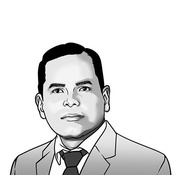
Prakash Sarangi
Dr P K Sarangi is an expert on the production of energy and materials from plant biomass and conducts leading research on microbial biomass utilization towards sustainable energy and materials towards wastes utilization. Dr. Sarangi’s main research is focused on microbial catalytic systems, Microbial cellulose utilization, bioconversion technologies, innovative biomass processing technologies and sustainable bioenergy futures. His expertise is in biomass degradation into bioenergy and biomaterials, lignocellulosic biomass conversion and second generation biofuel and environmental waste remediation. His research focuses for utilzation of agro wastes towards production of different value added phenolic flavour compounds.

Chris Greening
Professor Chris Greening is dedicated to using microbiology to improve global health and sustainability. Growing up in northwest England, he completed a first-class degree in Molecular and Cellular Biochemistry at the University of Oxford (2010) and found himself amazed by the many superpowers of microorganisms. He then went down under to complete a doctorate at the University of Otago (2014), New Zealand on the physiological roles of the hydrogenases in mycobacteria and stumbled upon a new microbial superpower: the ability to 'live on air'. After gaining postdoctoral experience at the CSIRO, Chris was appointed as a group leader in Monash University in Melbourne, Australia in 2016. He currently leads a large interdisciplinary team focused on understanding microbial gas metabolism from the enzyme to ecosystem scale. He has also partnered extensively with large-scale intervention programs and diverse industrial organisations to translate these findings to reduce greenhouse gas emissions and reduce pathogen exposures in the Asia-Pacific region. In 2023, he was awarded the Prime Minister’s Prize for Life Scientist of the Year.

Mingfeng Cao
Dr. Mingfeng Cao is a professor at the Department of Chemical and Biochemical Engineering, Xiamen University, China. He received his Ph.D. degree at Nankai University in 2011, and then worked as a research associate at Tianjin Institute of Industrial Biotechnology, Chinese Academy of Science (2011-2013), a postdoctoral research associate at Iowa State University (2013-2018), and a research scientist in the Center for Advanced Bioenergy and Bioproducts Innovation, University of Illinois at Urbana-Champaign (2018-2021). His research focuses on the development of synthetic biology and metabolic engineering tools to engineer microorganisms to produce value-added chemicals.

Paul Cotter
Prof Paul Cotter is Head of Food Biosciences and a Senior Principal Research Officer at Teagasc Food Research Centre at Teagasc, Moorepark, Fermoy, Ireland and a PI with the APC Microbiome Ireland and VistaMilk SFI Centres. He also co-ordinates the EU H2020 project, MASTER, and is a PI with Food for Health Ireland (FHI). He is a molecular microbiologist, with researchers in his lab focusing particularly on antimicrobial peptides (bacteriocins) and the microbiology of the gut (and its role in health and disease, including in athletes) and of foods (fermented and other dairy foods) and food production/processing facilities. Prof Cotter also leads the Teagasc/APC DNA sequencing facility and is an adjunct Professor at University College Cork and an adjunct lecturer at Munster Technical University. Prof Cotter’s Vision I laboratory was awarded the title of Irish Food Laboratory of the Year 2013, 2015, 2016, & 2018, and Agriculture Laboratory of the Year in 2019 and 2020. He has received awards from the Society for Applied Microbiology, ESCMID and FEMS and is the joint Section Head (applied microbiology) of Faculty of 1000 (Biology).

Marcela Hernandez Garcia
Marcela completed her PhD in Natural Resources in 2010 in Chile. After completing her PhD, she received an award from the Alexander von Humboldt Foundation to perform her postdoctoral research at the Max Planck Institute for Terrestrial Microbiology, in Marburg, Germany. In 2015, she moved to the UK to become a NERC research fellow in Environmental Microbiology at the University of Southampton (UoS). Marcela is currently a a Senior Research Associate in the group of Colin Murrell at the University of East Anglia in Norwich. Her career is dedicated to studying how microbial communities establish in soils perturbed either by human manipulation or natural disturbance, specifically methanogens in paddy rice soils, carbon monoxide oxidisers in volcanic soils, antimicrobial resistance in agricultural soils and the resilience of microbial communities in archived soils. She uses high-throughput sequencing and stable-isotope probing to assess community diversity and function. Marcela is editor of the Journal of Applied Microbiology and has been a member of the AMI since 2017. Marcela is highly involved in outreach, receiving in 2017 the UoS “Research Communicator Road-show Award” for outstanding public engagement. Marcela is also a Chinese Academy of Science (CAS) visiting professor at the Institute of Soil Science CAS-Nanjing, China.

Rahul Jain
Professor Rahul Jain is an experienced Assistant Professfor with a demonstrated history of research work in the area of microbial biotechnology. Their research work is majorly focused on the production of cold-active lipase production and purification and screening of potential plant growth promoting bacteria for biofertilizers formulation. Their PhD focused in Biotechnology from Kumaun University, Nainital and GBPNIHESD, Almora.

Suni Mathew
Suni Mathew is a Senior Researcher at the University of Turku, Finland. Following her PhD in molecular biology, on plant gene expressions during abiotic stresses, she was interested to explore further on plant-microbe interactions. Her postdoc project at University of Jyväskylä and University of Turku focused on the factors determining microbial community compositions and effects of agrochemicals on microbial communities associated with plants and pollinators.
Presently, she is the Principal Investigator of the HeMetAP project (funded by Alhopuro foundation) that studies the effects of heavy metal pollution on plant-associated microbial communities in Arctic ecosystems.

Ashley Shade
Ashley Shade received her bachelor’s degree in biology from Susquehanna University (Selinsgrove, PA, USA), her Ph.D. from the University of Wisconsin Microbiology Doctoral Training Program in 2010, and afterwards was a Gordon and Betty Moore Foundation postdoctoral fellow of the Life Sciences Research Foundation at Yale University. In 2014, she started her independent research group in the Department of Microbiology and Molecular Genetics at Michigan State University. She was awarded tenure at Michigan State and promoted to associate professor in 2021. In 2022, she joined the French National Center for Scientific Research (CNRS) and moved her research program to the Laboratoire Ecologie Microbienne at the University of Lyon, France.
In her research, Ashley aims to understand how to predict and manage environmental microbial communities to achieve resilience to climate change. Resilience is the capacity of a system to recover after it has been altered by a disturbance. Her lab employs ‘omics tools with both field and laboratory studies. Her focal systems include disturbed environments and agricultural soil and plant-microbiomes, as well as laboratory-scale “synthetic” microbial communities.
Ashley has been recognized as an Ecological Society for America Early Career Fellow (2019), and has an active National Science Foundation CAREER award (2017). She was honored with the Michigan State University Graduate School Outstanding Faculty Mentor award in 2021. In 2023, she received a European Research Council Consolidator award.

Komang Ralebitso-Senior
I achieved my BSc in Environmental Microbiology from the University of Natal, South Africa in 1998. From here, I went on to achieve my PhD from the University of Natal. I am now a Senior Lecturer in Microbial Ecology. My research interests in microbiome science and technology are to understand and exploit complex interacting microbial communities. We achieve this by applying molecular techniques for the analysis of ecosystems that are impacted by decomposition, biochar, pollutants and waste products.
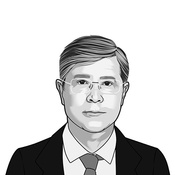
Juan Luis Ramos
Juan Luis Ramos is a Full Professor at the Spanish National Research Council (CSIC). From October 2013 to September 2017 he was the Director of the Biotechnology program of Abengoa Research. He received the Prize King Jaime I for his achievement in environmental research and the Lowff medal of FEMS in 2013 for achievements in environmental microbiology. In 1978 he graduated from the University of Seville where he obtained his Bachelor’s Degree. In 1981 he was awarded his PhD with a thesis on the bioconversion of solar energy into chemical energy. He spent almost two years as a post-doctoral researcher at the Unit of Nitrogen Fixation in Brighton (UK), supported by an EMBO fellowship and over two years at the Department of Medical Biochemistry in Geneva (Switzerland), where he started working on the metabolism of aromatic hydrocarbons in Pseudomonas. Prof. Ramos has been a diligent editor of Environmental Microbiology (since 2007), Environmental Microbiology Reports (since its foundation in 2008), and Microbial Biotechnology (since its foundation in 2007) journals.
